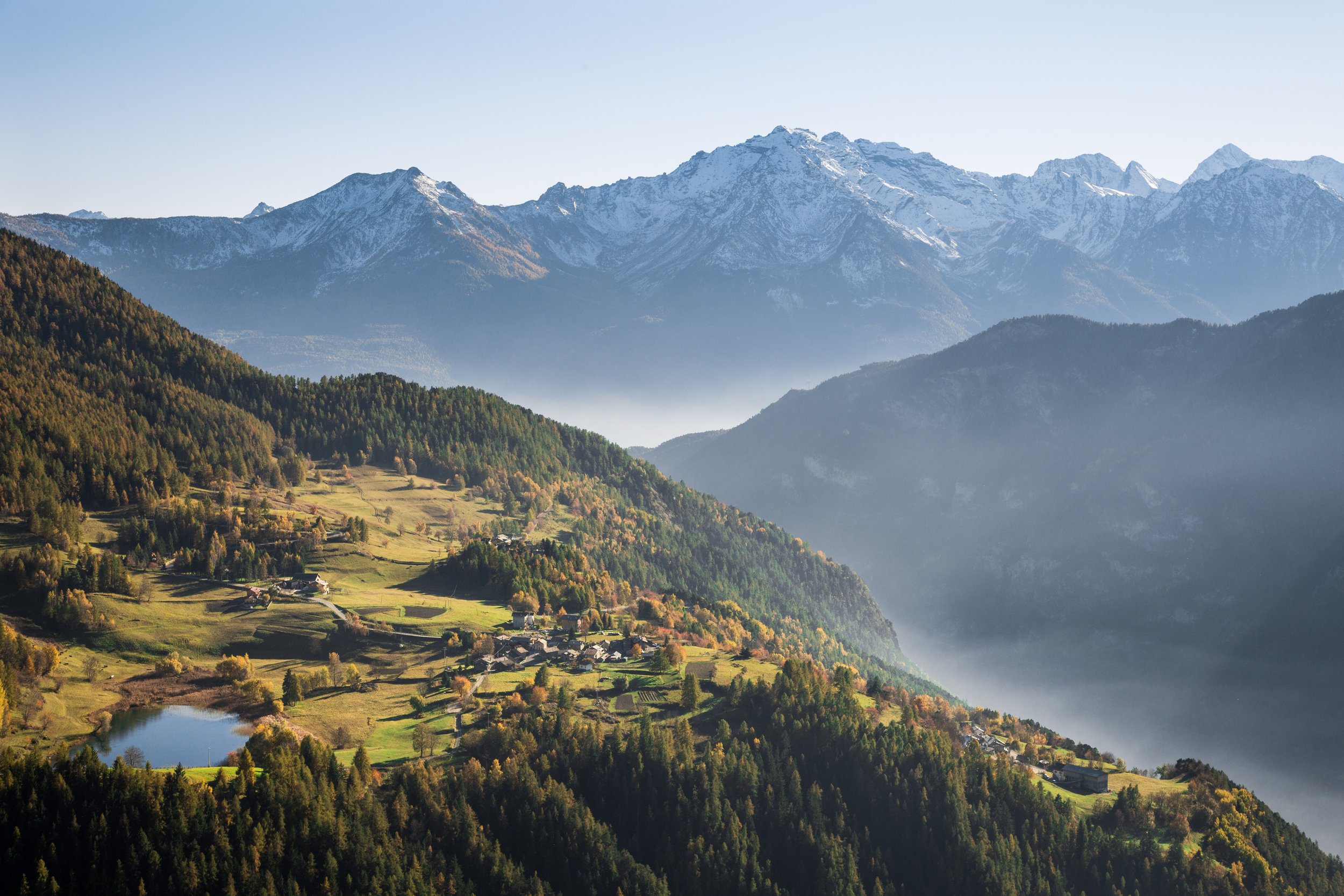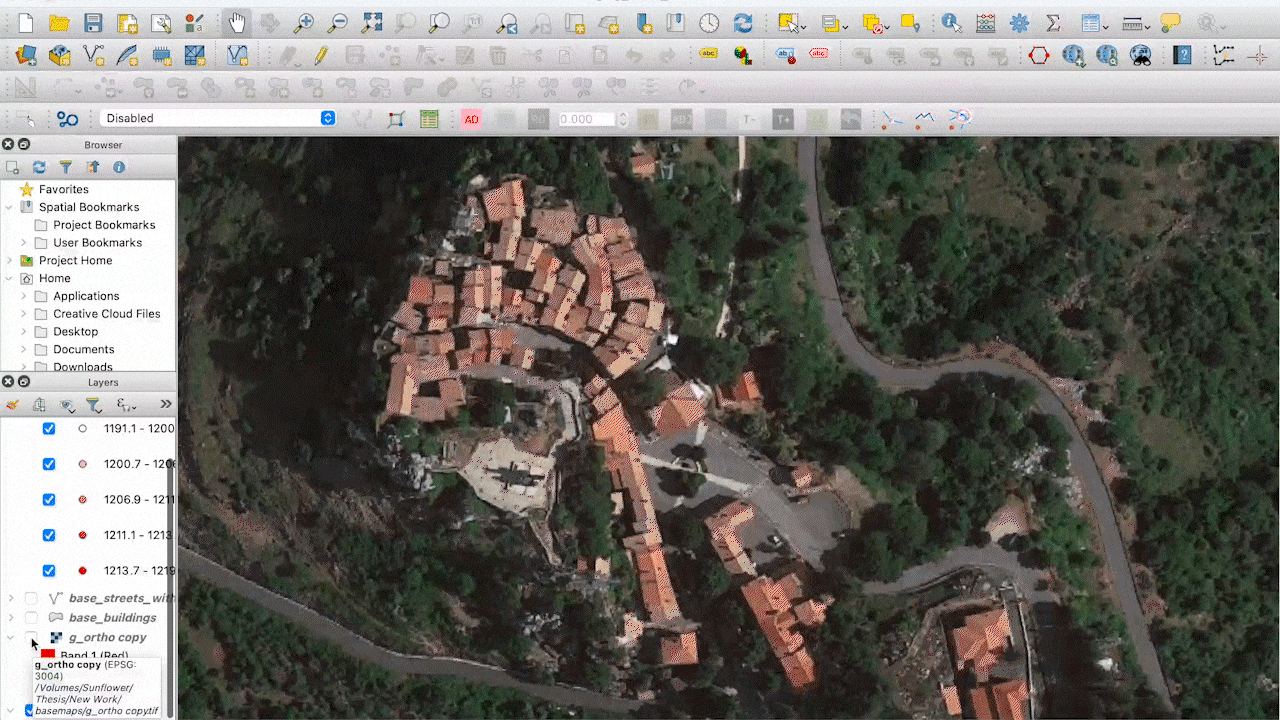encouraging reuse
phase 1/2
the development of a methodology to gather granular data on abandonment and degradation in small historic centers
this research initiative is focused on informing innovative strategies to reprogram mountain villages and towns
location
valle d’aosta
municipality of fontainemore
municipality of perloz
challenge period
may 27 – august 23 / 2024
21 days on the ground
challenge champions
status
complete

Encouraging Reuse is a research initiative focused on developing a participatory methodology to collect detailed data on the qualities, usage, accessibility, and conservation status of buildings in small historic centers. The objective is twofold. Firstly, to test and refine a toolkit for use by local communities in small rural towns. Secondly, to ensure the data gathered serves as a foundation for developing participatory reprogramming strategies for underutilized built heritage.
This initiative aims to inform innovative strategies for reprogramming mountain villages and towns in the Valle D'Aosta Region, with plans to expand the toolkit's use to other Italian regions. Encouraging Reuse is part of multiple research efforts conducted in partnership with MISTI Italy and a variety of local partners across Italy in the last two years. This summer will present members with the opportunity to continue developing this line of work through a key phase: refining and translating the research into useful outputs for local stakeholders in the Valle d’Aosta region.
expected outputs
documentation and tools for a participatory methodology to map building qualities and condition at an urban scale
report on the findings from the experimental case studies in valle d’aosta
report on the SWOT analysis conducted in the case study towns, with preliminary guidelines for phase 2 of the challenge (reprogramming strategies)
partners
SDG areas
9. industry, innovation and infrastructure
11. sustainable cities and communities
team status
spots remaining are available to italian speakers only
member requests assessed on a rolling basis
useful skills & backgrounds
mapping, condition surveying, stakeholder engagement, data analysis, programming, machine learning, GIS, indesign, italian
urban design, city planning, computer science, graphic design, policy, architectural conservation/restoration
perks
lodging (shared rooms)
local transportation
workspace with Wi-Fi
welcome aperitivo
farewell aperitivo
conditions on
the ground
The challenge will take place in small and underserved towns with spotty Wi-Fi connections and no AC. Members are expected to embrace life in these towns and remain in the region during the weekly rest day (usually Sundays). Members will likely share rooms with other participants.
schedule preview
remote
may 27 – june 21
calls & independent research
may 27 – may 31
2 calls
introductions
challenge overview
subdivision of tasks
june 3 – june 7
2 calls
base file development
methodological refinement
policy literature review
reprogramming precedents
june 10 – june 14
2 calls
continued from previous week
june 17 – june 21
2 calls
research summaries
onsite workflow coordination
on the ground
july 1 – july 9 (optional)
full days
monti prenestini
july 1– july 6
toolkit testing in monti prenestini
july 7
rest day
july 8 – july 9
toolkit testing in monti prenestini
Participating members are welcome to stick around in Monti Prenestini after the Liminal Assembly (June 27–30) to perform preliminary tests of the toolkit with challenge champions before heading north to Valle d’Aosta. That said, this time on the ground does not count on any of the perks offered for the challenge, which are limited to the time in Valle d’Aosta.
on the ground
july 15 – august 4
full days
valle d’aosta
july 15 – july 20
arrival in valle d’aosta
community engagement
SWOT analysis
july 21
rest day
july 22 – july 27
data collection
toolkit development
july 28
rest day
july 29 – august 3
analysis
mapping & visualization
august 4
departure from valle d’aosta
remote
august 12 – august 23
calls & independent research
august 12 – august 16
2 calls
toolkit documentation
mapping
august 19 – august 23
2 calls
impact assessment
reporting

